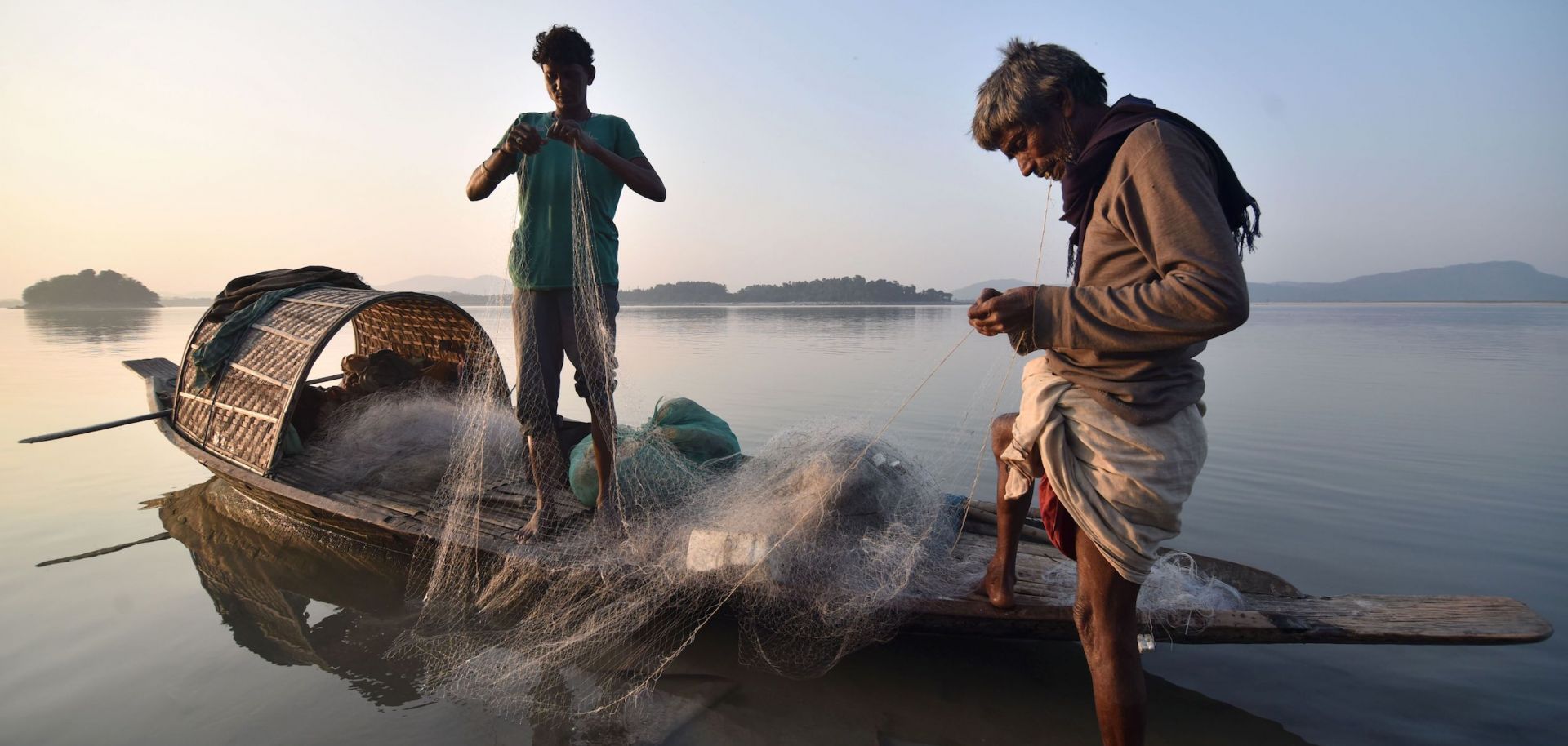GLOBAL PERSPECTIVES
China and India's Disputes Spill Over Into Their Water Supply

May 22, 2018 | 18:02 GMT

Fishermen get ready to cast their net on the Brahmaputra River, part of a massive river system that India shares with China, Nepal, Bhutan and Bangladesh.
(BIJU BORO/AFP/Getty Images)
Highlights
- Despite the size and importance of the massive interconnected river system China and India share (along with Nepal, Bhutan and Bangladesh), no integrated structure exists for its management, and the bilateral agreements that govern it are far from sufficient.
- Political disputes, such as the 2017 standoff over the Doklam Plateau, could harm the waterways China and India share.
- Unless the countries agree to institute a basinwide mechanism for water management, the river systems they both depend on will be at risk.
Subscribe Now
SubscribeAlready have an account?
